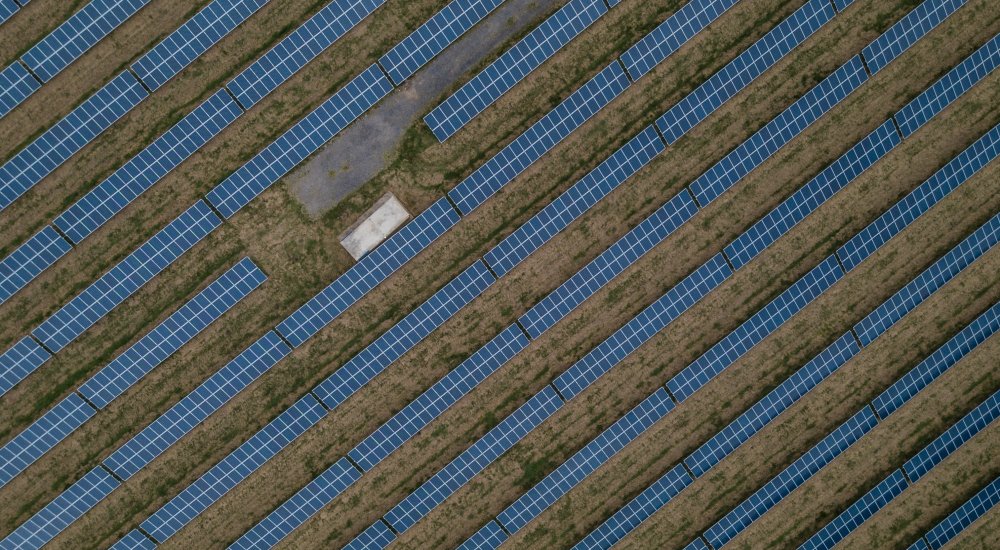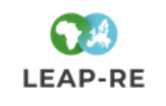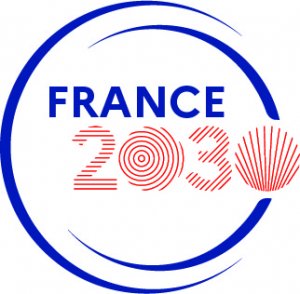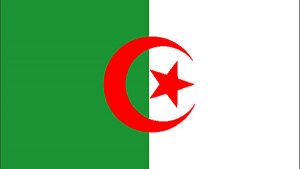LEAP-RE 2nd Call for AU-EU Collaborative Research and Innovation projects on Renewable Energy

The Long-term Europe-Africa Partnership on Renewable Energy (LEAP-RE) programme co-funded by the European Union (EU) under Horizon 2020 aims to increase the use of renewable energy via a well-balanced set of research, demonstration, and technology transfer projects in both continents.
This programme is led by a consortium of 83 partners from European and African countries. The whole budget of the programme is around €32 million, including €15 million from the EU. LEAP-RE is structured around three Pillars: Pillar1, the focus of this call, comprises the implementation of transnational proposals for research, innovation and capacity building, funded by national/regional funding agencies and by the EU; Pillar2, is a cluster of individual R&I and capacity building projects implemented by members of the consortium, whilst Pillar3 focuses on program management and the design of a long term AU – EU strategic partnership on renewable energy.
Bringing together 9 African and European funding agency members of LEAP-RE consortium, this pillar is devoted to the preparation and implementation of transnational joint calls for proposals co-funded by European and African national research funding agencies, with an additional EU top up. The projects funded under the calls will focus on achieving goals of mutual benefit based on a balanced and cooperative approach. Particular attention will be given to strengthening the impact of R&I supported activities for the well-being of society in Europe and in Africa. The total indicative call budget is around €4 million provided by funding organizations + €2 million from EU contribution.
Each project consortium that applies for funding under Pillar 1 must consist of research teams from a minimum of four countries from the two continents, with at least 2 from European countries and at least 2 from African countries.
Each consortium must include at least one partner from the public sector (academic, public research …) and one partner from a commercial company located in participating (to this Call) countries.
Scope of the Call and priority Areas for Collaboration
The range of activities recommended for collaboration under LEAP-RE will focus on 6 identified multi-annual roadmaps presented in the Call:
- Mapping renewable energy joint research and innovation
- End of life of renewable energy components
- Smart stand-alone systems
- Smart grids
- Productive uses of energy
- Domestic uses of energy
The LEAP-RE Joint Call 2022 will fund basic research, applied research and experimental development projects that are 12-24 months long. However, applicants should be aware that each funding agency participating to the Call will apply its own rules and regulations regarding eligibility and criteria (nationality, thematic, nature of project, TRL, rate of subsidy, etc.).
Call Calendar
- July 8th 2022: Publication of the Call
- September 23rd, 12:00:00 CEST: Deadline for Pre-proposal submission (mandatory)
- Mid-November: Communication of pre-proposal assessment
- January 12nd 2023, 17:00:00 CET: Deadline for Full Proposal submission
- End-March 2023: Communication of full-proposal assessment
Documents
- LEAP-RE call 2022
- Checklist for the Consortium Coordinator
- Pre-proposal Template (Form A)
- CV of Key personnel
Inquiries
- For all general inquiries contact: pilier1@leap-re.eu
- For questions about the national/regional funding regulations: contact your national contact person (table 1 and appendix IV of the Call text)
- For technical inquiry on the electronic submission system contact: Marie-laure.tarot@anr.fr
Funding Organisations
- Algeria: MESRS
- Morocco: MENFPESRS
- South Africa: DSI
- Belgium: FRS-FNRS
- Austria: FFG
- France: ANR
- Germany: FZJ-PtJ
- Italy: MUR
- Romania: UEFISCDI
Applicants from African countries not participating to the Call should contact the Call secretariat and LGI in charge of contracting with these partners (more detail in the call text p.17 and 47).



